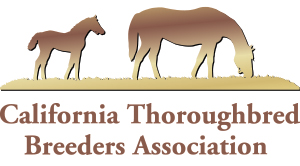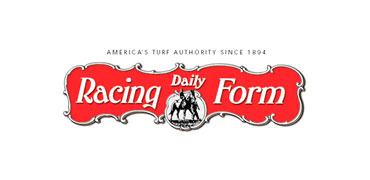By Jay Hovdey, DRF.com
PLEASANTON, Calif. (June 18, 2014) — The rest of the Thoroughbred world is forgiven if it views the current state of the California racing and training landscape as an elaborate game of pick-up sticks, in which all the pieces are gathered together, then tossed on the table, to be played wherever they lay.
Santa Anita Park is squeezing out the last two weeks of its first marathon meet, during which it was able to leverage the Triple Crown appearances of local hero California Chrome into three great days, but not much else. Fairplex Park management wants out of the horse-racing business – the disposition of its dates was on the California Horse Racing Board agenda this week – while Los Alamitos wants in, big time, and continues to build barns to house the stables soon to be displaced at both Fairplex and Santa Anita, which will be closing soon in order to renovate its main track for the fifth time in the last eight years.
Don’t ask what Del Mar has to do to clean up after the Del Mar Fair, that big, juicy slice of Americana currently having its way with California’s most popular track. Just be thankful the meet will open on that blessed third Wednesday in Ju – what? Del Mar’s not opening on a Wednesday? A Thursday, you say? July 17? Good grief. Next you’ll be telling me that the Oak Tree Racing Association is back in business.
It is, in fact, doing business for the first time with the Alameda County Fair in the town of Pleasanton, a fine little community of about 70,000 souls located 25 miles east of Oakland. The racetrack at the Alameda fairgrounds stepped up to fill what stabling void it could upon the closure of Bay Meadows in 2008, just as Los Alamitos is trying to soften the loss of Hollywood Park. Now, the charitable Oak Tree group – homeless since its lease was canceled by Santa Anita in 2011 – has partnered with Pleasanton for its two weeks of racing under way this week.
Necessity being the mother of most invention, Oak Tree was inspired to find a home in large part because of a $3 million pension settlement hanging over its head if it was determined that the association was no longer in the racing business. But neither were the Oak Tree directors, led by president John Barr and executive vice president Sherwood Chillingworth, ready to surrender Oak Tree’s 44 years of service to the industry.
“We feel Oak Tree still has a lot to contribute to racing in California,” Chillingworth said.
What Oak Tree is able to give back to the business depends on how much is bet on its races. To that end, the association has beefed up the Pleasanton stakes schedule with a pair of hundred-granders and increased the marketing budget. The racing still will look like a county fair, only more so. What it will sound like – at least for the first six days of the meet – is something else again.
Dave Rodman is the voice of Maryland racing. He is the man who has called the last 24 runnings of the Preakness for the live Pimlico audience, which makes him a regional institution with a national reputation. Normally, Rodman would be working the Colonial Downs meet right now in Virginia, but Virginia horsemen and track management have been at each other’s throats lately, leaving the meet in limbo.
When Oak Tree-Pleasanton needed someone to launch the meet in the booth (regular fair announcer Frank Mirahmadi is subbing for Trevor Denman at Santa Anita), Rodman got the call. Earlier this week, he was reached at home in Maryland, packing for California.
“I was told I could come to work in shorts,” Rodman said, getting in the West Coast groove. “I’m also working on the mule races. All I really know is Black Ruby. I hear they don’t always keep a real straight course.”
A seasoned pro like Rodman should have no problem with the variety of a Northern California fair. For starters, Rodman’s done the fair meet at Maryland’s Timonium, so the sight of a Ferris wheel won’t freak him out.
“I love the game wherever it’s played,” Rodman said. “I try to convey that feeling in my calls.”
Anyway, there is nothing that the Arabs, Appys, Quarter Horses, mules, or Thoroughbreds can throw at Rodman that is stranger than the race at Pimlico in April 2013 in which a young horse named Spicer Cub bolted in the stretch, ran down a narrow alley between the parked starting gate and the outside rail, and emerged to be narrowly beaten at the wire. More than 145,000 YouTube hits of the race on the Pimlico site made it Rodman’s most popular call since the Afleet Alex stumble in the 2005 Preakness.
Rodman, 55, is a New Orleans native who began his working life as a disc jockey before cutting his teeth as a race caller for tracks on the Louisiana circuit. His only West Coast experience came on the staff of the radio trade magazine Fred, based on the Monterey Peninsula, in the late 1970s.
“It was run by one of the great rock-radio gurus, Buzz Bennett,” Rodman said. “There I was, at Carmel-by-the-Sea, working for one of my radio idols. So, that’s my memory of California.”
Pleasanton is not exactly Carmel, but the town has its charms, and Rodman’s brief tour is a win-win. He can visit San Francisco on his dark days, and California racing taps into a respected voice who lends the Oak Tree-Pleasanton product credibility.


